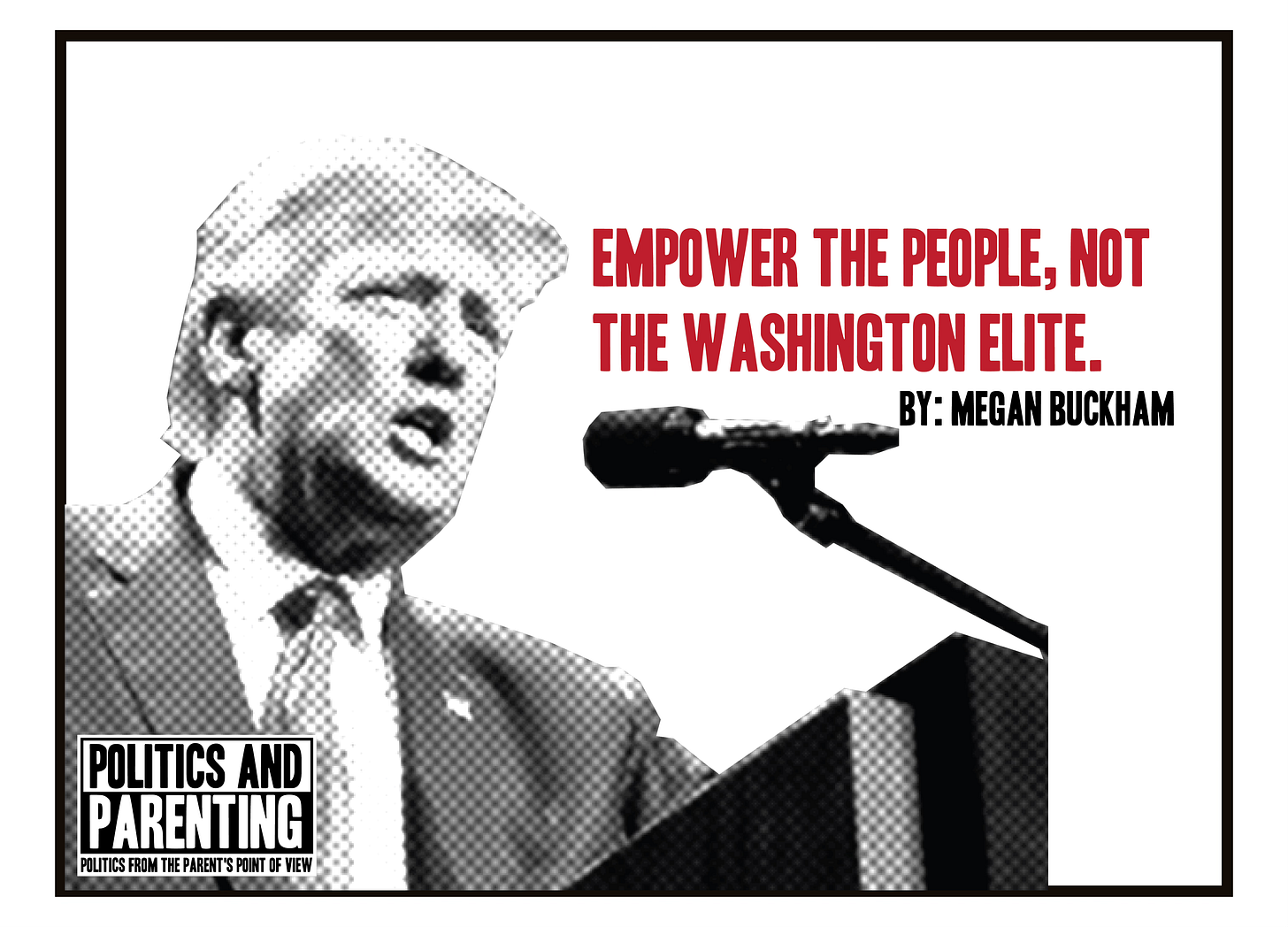Ever since Donald Trump popularized “Drain the Swamp” in modern political vernacular, countless articles, books, and essays have been written to explain what it means and how to accomplish what was once just a rallying cry. And even more ink has been spilled to explain why the swamp wasn’t drained during Trump’s administration—it got bigger.
Let’s propose a new idea: to drain the swamp–– stop sending money to Washington. No, not like that. Keep paying federal income taxes, but stop subscriptions and contributions to Washington, D.C. based think tanks and non-profits. There are hundreds of these research and advocacy groups in Washington—for every cause out there, no matter how niche, there is a nonprofit organization promising to champion the cause, solve the problem, and make the world a better place. These organizations are largely self-perpetuating, hollow, and antithetical to a true representative democracy.
The mutualism between our elected officials and Washington non-profits is hurting our relationship with our government. Nearly two centuries ago, Alexis de Tocqueville wrote Democracy in America after a months long tour of the new country. Tocqueville noted that politics seemed to be divided between national and local government and the strength of the overall system was dependent on the strength of local governments—"I believe that provincial institutions are useful to all nations, but nowhere do they appear to me to be more indispensable than amongst a democratic people.”
Washington, D.C. based organizations have replaced the natural role of the people when it comes to advocacy and accountability for our government. After all, why do citizens need to keep track of what their senator or congressman is voting for, speaking about, or working on when they can send their money to an organization that will score their votes for them? Why do citizens need to contact their elected representatives to let them know their interests when a think tank can hand a dozen Capitol Hill staffers a white paper with polished policy proposals?
The answer is that our system depends on it. Our elected officials at every level answer to the citizens who gave them power. Instead of sending money to these Washington-based groups, citizens should send it to local, state, or regional groups. Or use that money to send letters to representatives in towns, counties, states, and Congress. Get more involved with those sent to represent the people’s interests.
The average Washington, D.C. based organization will justify its fundraising and spending by tallying how many Capitol Hill staffers, congressmen, or senators they meet with without offering any tangible outcomes or progress made. These groups will advertise these numbers or tout how their proximity to Capitol Hill uniquely positions them to impact the policy decisions members of Congress face daily. If Trump wins in November, you can guarantee each organization will send their donors and prospective donors pitches, including how many of their employees, scholars, and fellows are poised to serve in the new administration.





